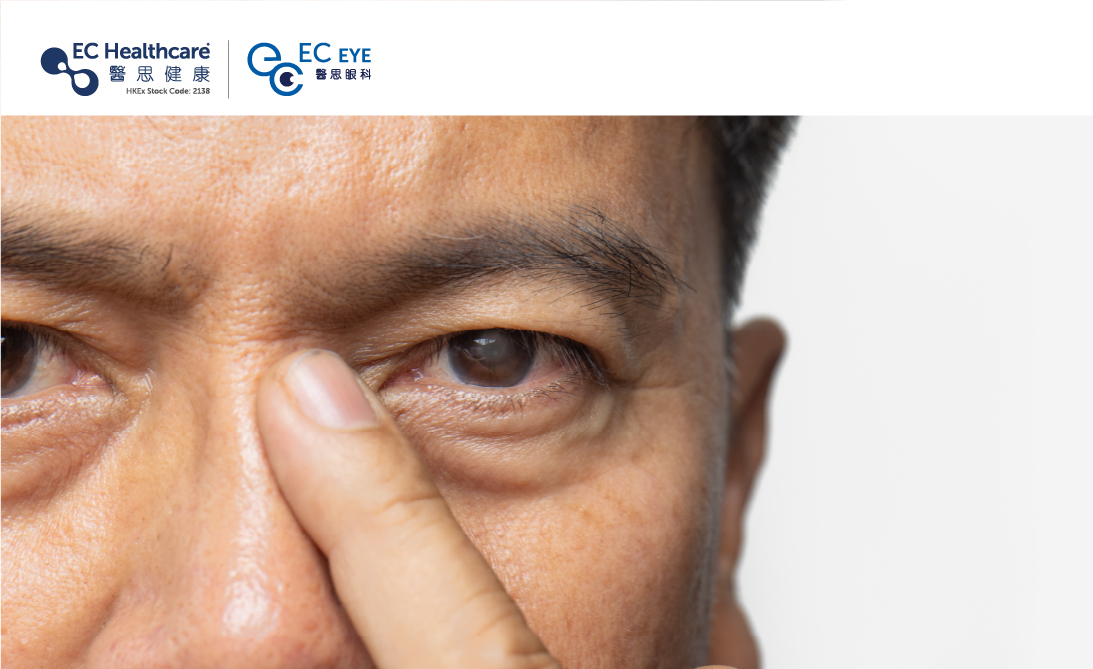

While cataracts are commonly known as an age-related eye condition, it is important to note that macular diseases, such as polypoidal choroidal vasculopathy (PCV), are prevalent among the elderly in Hong Kong. PCV is a particularly challenging eye disease that can rapidly worsen. Each year, there are approximately 1,200 to 1,500 confirmed cases. If patients neglect its presence and fail to seek timely medical attention, they can become blind within a matter of days.

Understanding PCV
Age-related macular degeneration can be classified into dry and wet types, with PCV falling under the category of wet macular degeneration. The main cause of PCV is the abnormality in the choroidal blood vessels, resulting in the presence of a large amount of vascular endothelial growth factor (VEGF) in the body. This leads to the proliferation of blood vessels in the choroid (Choroidal Neovascularization) and the formation of polyp-like lesions containing blood and fluid.
These proliferating blood vessels are highly fragile and prone to leakage or bleeding. If the blood and fluid leak into the macular area, it can significantly impact vision. Moreover, if the polyp-like lesions are slightly disturbed and rupture, the blood and plasma may have the potential to seep into the vitreous, causing opacity. In severe cases, this can lead to blindness within a few days.
Symptoms Can Occur Suddenly or Gradually
PCV typically manifests initially in one eye but may eventually affect both eyes over time. During the early stages of the disease, there may be no apparent symptoms of PCV, although some patients may experience dryness in the eyes. PCV can present with symptoms that either appear suddenly or progress gradually. These symptoms can affect one or both eyes, leading to blurred vision (especially in the central field), distorted perception of objects, shadows or dark spots, and wavy lines when viewing straight objects. These manifestations can impact the daily lives of these patients. Furthermore, studies have shown that PCV patients have twice the risk of falling compared to the general population and are 17 times more likely to require assistance from others.
Controlling the Disease through Injections
Currently, the effective treatment for PCV involves intravitreal injections of Aflibercept, a medication that inhibits the activity of VEGF in the retina. By doing so, it causes the regression and disappearance of vascular polyps, as well as reduces the formation of new blood vessels. The dosage and frequency of injections are determined based on the individual's condition and response to treatment.
In terms of treatment effectiveness, receiving intraocular injections before polyps rupture can yield significant improvement, with the potential to restore 50-70% of visual acuity. However, once polyps have ruptured, visual acuity is generally irreversible and can only be maintained at a stable level while preventing recurrence. Therefore, if there is any suspicion of PCV, seeking prompt medical attention is essential to avoid missing the optimal treatment window. International research is also investigating the use of intravitreal injections in conjunction with photodynamic therapy to control the progression of the disease. This combined approach aims to promote closure of the affected blood vessels and eliminate choroidal neovascularization within the macular area.
Regular Check-ups for Maintaining Eye Health
While PCV tends to occur more frequently in individuals aged 60 and above, approximately 5% of patients are under the age of 50, with the youngest reported case being only 18 years old. Smokers, individuals with the 3 hypers, diabetes, or a family history of eye diseases are considered high-risk groups. Furthermore, as urban lifestyles increasingly rely on electronic devices, concerns among eye care professionals, optometrists, and ophthalmologists are growing regarding the rising incidence of visually impairing conditions such as macular degeneration, cataracts, and glaucoma.
It is strongly recommended that individuals aged 40 and above undergo regular eye examinations to proactively monitor, detect, and manage their eye health. If any abnormalities or discomfort in the eyes occur, it is crucial to avoid self-medicating with eye drops and instead seek prompt medical attention to receive appropriate treatment.






